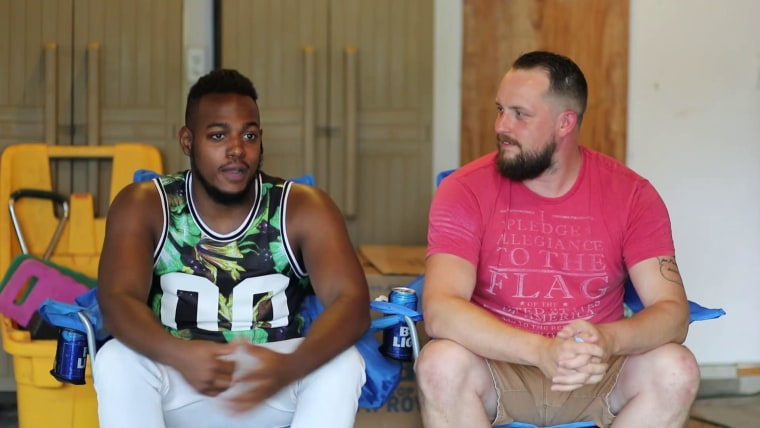Activities That Raise Testosterone Levels
Dinner at an outdoor restaurant with another couple. Yoga class with a few colleagues. Backyard BYOB drinks and appetizers with a family you know well, so the kids can play. A family get-together at the beach before the oldest cousins leave for college. A friend's wedding just across the state line.
These days, deciding whether to attend a social gathering is a lot more complicated than just checking your calendar. There's COVID-19 to consider. And there's no clear guideline for how to social distance that can guarantee zero risk of contracting COVID-19.

Before you start interacting with friends and family outside your bubble:
- Think about how much risk you're willing to take on when you're socializing during COVID-19.
- Factor in whether you're comfortable passing that risk along to others.
- Balance those risks with the value this event holds for you — grandparents who have been self-isolating might take on some risk if it means they meet their newborn grandchild for the first time, for example.
As you make your decision, keep in mind how the virus spreads — predominantly by exposure to droplets when you're close to someone who's sick, said Dr. Graham Snyder, the medical director of infection prevention and hospital epidemiology at University of Pittsburgh Medical Center. So, you want to reduce your exposure to those droplets.
In lower-risk activities you're outdoors, following social gathering rules and wearing masks, and only contacting a few people. Crowded bars bring a lot more risk. "As you progressively escalate you increase the likelihood that you'll encounter a carrier or asymptomatic person. It's a personal judgment call on how much risk you are willing to take," Snyder said.
What to ask before socializing during COVID-19
To help decide whether to be among people socializing, ask yourself or your host these questions about social gathering guidelines:
1. Is this something you could do online?
When it comes to a social distance party or even a small gathering, there's always some risk. "All the other questions are ways to mitigate risk — the risk is never absolutely zero. Recognize that there's going to be some risk involved," said Christopher Sulmonte, project administrator for the biocontainment unit at Johns Hopkins Medical Center in Baltimore.
2. Is the event indoors or outdoors?
"The chance of transmission is much higher indoors," Sulmonte said. "It's a huge difference." Outside, it's much more likely that airflow will move the droplets away and reduce your risk of inhaling them.
If the event is indoors, can the windows be open? And is there enough space for people to socially distance?
3. Will people be wearing masks and social distancing?
"If people are wearing masks, the droplets they are exhaling are less likely to make it into the air space. There's more and more data showing that mask wearing is effective to prevent transmission," Snyder said.
4. How many people will be there?
Many states have restrictions on the number of people who can gather indoors and outdoors. The bigger the crowd, the more likely someone there is infected with the coronavirus — and people could be sick and spreading COVID-19 before they show symptoms.
"If you keep group sizes small and someone is contagious, the number of people impacted will be smaller," Snyder said. From his window, he can see a park where dozens of people will gather for a barbecue. "That is clearly too many, especially unmasked," he said.
5. How long will the event last?
It's important to keep in mind that risk is higher when people are together longer.
6. Will guests who've been sick or exposed to COVID-19 quarantine before the event?
Anyone who is sick should stay home. And people who have been notified that they've been exposed to someone who has COVID-19 have up to 14 days where they may be contagious, even if they never develop symptoms. So they need to self-isolate for 14 days.
7. Can people practice appropriate hand hygiene?
Keeping your hands clean is important — if you touch a contaminated surface, then touch your mouth, nose or possibly your eyes, that could be a way to contract the virus, Snyder said. Soap and water is best. Alcohol-based hand sanitizer is an option if soap and water aren't available.
8. Will you need to self-isolate before or after the event?
Crossing state lines could mean you need to self-isolate for 14 days before the event, in the state where it's held or in your home state when you return.
9. Are other guests following public health recommendations?
Sulmonte recommends being upfront about the precautions you're taking. "Open up the conversation by showing the effort, kindness and work you're doing," he said. "Show that you're doing your best to be safe and to mitigate their risk."
10. How prevalent is the virus in the community?
In areas with higher overall infection rates, you're more likely to encounter people who are sick. "There are communities in the U.S. with lots [of infection] and communities with very little. That's constantly changing and has been changing throughout the pandemic," Snyder said.
Stephanie Thurrott is a writer who covers mental health, personal growth, wellness, family, food and personal finance, and dabbles in just about any other topic that grabs her attention. When she's not writing, look for her out walking her dog or riding her bike in Pennsylvania's Lehigh Valley.
Activities That Raise Testosterone Levels
Source: https://www.today.com/health/how-reduce-your-risk-getting-covid-19-if-you-socialize-t190121

0 Komentar